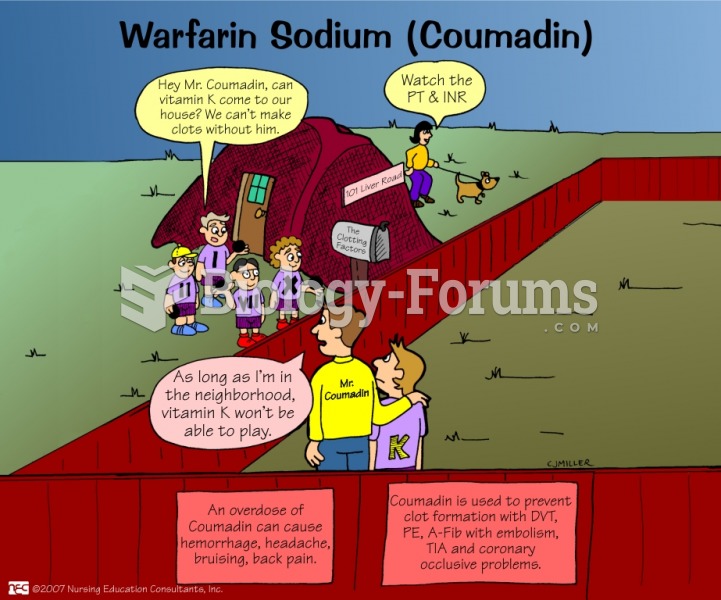Answer to Question 1
Correct Answer: 4
Rationale 1: The combination of Coumadin and feverfew does not cause renal dysfunction.
Rationale 2: The combination of Coumadin and feverfew does not cause increased coagulation.
Rationale 3: The combination of Coumadin and feverfew does not cause liver toxicity.
Rationale 4: Feverfew interacts with aspirin, heparin, NSAIDs, and warfarin and can cause increased bleeding.
Global Rationale: Feverfew interacts with aspirin, heparin, NSAIDs, and warfarin and can cause increased bleeding. The combination of Coumadin and feverfew does not cause renal dysfunction, increase coagulation, or cause liver toxicity.
Answer to Question 2
Correct Answer: 3
Rationale 1: The client might not need a liver biopsy.
Rationale 2: The findings need to be documented, but another action is of higher priority.
Rationale 3: The combination of amiodarone and echinacea can cause severe hepatotoxicity. The most appropriate action for the nurse would be to notify the health care provider so that appropriate assessment and treatment can be initiated.
Rationale 4: Palpating for hepatomegaly could be done but is not the most appropriate nursing action.
Global Rationale: The combination of amiodarone and echinacea can cause severe hepatotoxicity. The most appropriate action for the nurse would be to notify the health care provider so that appropriate assessment and treatment can be initiated. The client might not need a liver biopsy. The findings need to be documented, but another action is of higher priority. Palpating for hepatomegaly could be done but is not the most appropriate nursing action.







